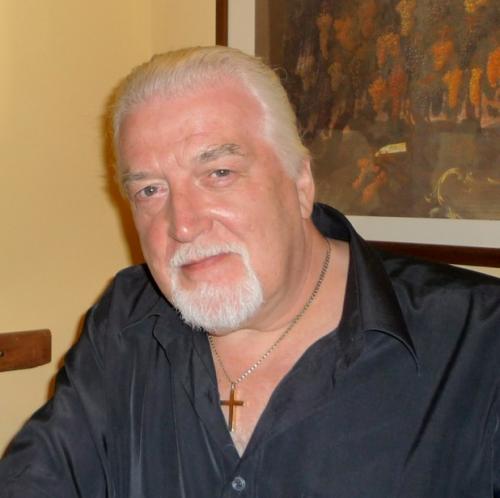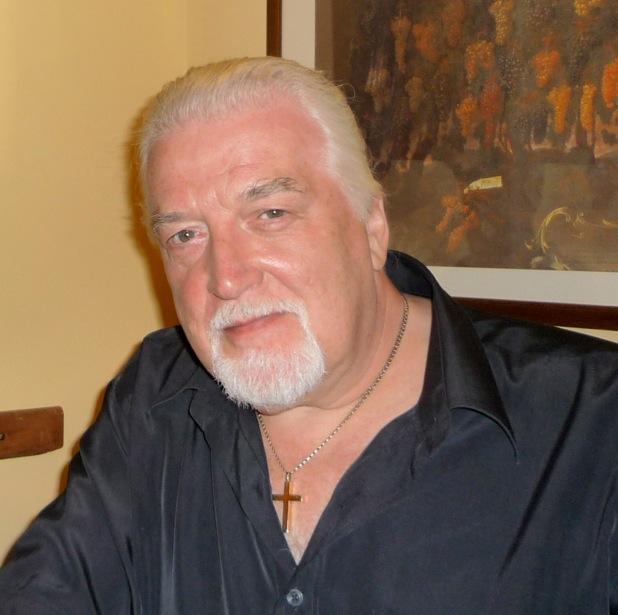Jon Lord, founder member and keyboard player of pioneering UK rock band Deep Purple, was a remarkable man with an extraordinary talent. The music world is lesser for his sad passing in July 2012 following his year-long journey with pancreatic cancer. Aside from his incomparable musical talent, Jon was also a passionate advocate of integrative approaches to healthcare. It’s only fitting that his legacy would include a research post to investigate the integrative management of pancreatic cancer. Having worked closely with Jon’s family and the Sunflower Jam charity, sponsor of the fellowship, we are delighted to announce that the Jon Lord Fellowship for the Integrative Management of Pancreatic Cancer will kick off next month in April 2015. Peyda Korhan PhD has been appointed as the research fellow for this inaugural project, offered through Imperial College, London under the esteemed auspices of Professor of Cancer Biology, Mustafa Djamgoz’s team and co-supervised by ANH-Intl's Robert Verkerk PhD.

Jon Lord — a giant of a man
Jon Lord was born in Leicester, England in 1941. He was best known for his unique keyboard playing and his diverse composing skills that spanned numerous genres from rock to classical. The band Deep Purple became a household name in the 1970s and went on to sell more than 100 million albums, and played live to more than 10 million people. In 2002, Jon left the band to focus on his solo career which gave him the opportunity to further develop his creative potential. Since Jon also believed passionately in the power of natural health and integrated approaches to health management and disease prevention, he became involved in 2006 with the fundraising work of the Sunflower Jam. The Sunflower Jam is a charity set up by his sister-in-law, Jacky Paice, — the wife of Deep Purple drummer Ian Paice — to work towards providing access for all to complementary and integrated treatments in the fight against cancer and other diseases by funding and supporting research, treatment and education.
On announcing the launch of the Jon Lord Fellowship, Jacky said, “It's only fitting that the inaugural fellowship in Jon's name should be dedicated to learning more about the cancer that took his life. It's equally fitting that the research be done at Imperial College, just a stone's throw from the Albert Hall that remained dear to Jon's heart since Deep Purple's historic Concerto for Group and Orchestra in 1969 with the Royal Philharmonic. We're also thrilled that the project will be guided by Prof Djamgoz and Dr Rob Verkerk, both of whom we know are deeply committed to finding new insights to both the treatment and prevention of cancer using an integrated approach.”

Pancreatic cancer
Most pancreatic cancers arise in the part of the pancreas known as the exocrine component, where digestive enzymes are produced, and the most common of these is adenocarcinoma. The cancer becomes more common over 65 years of age and above, and risk factors related to diet and lifestyle have been identified Sadly, cancer of the pancreas is among those types with the lowest survival rates. Cancer Research UK’s pessimistic figures report that only “22% of men survive pancreatic cancer for at least one year, and this is predicted to fall to 4% surviving for five years or more”.
About the Jon Lord Fellowship
The fellowship has been structured to include a high-quality evidence-based review of existing research on the integrated management of pancreatic cancer, conducted by postdoctoral researcher Dr Peyda Korhan. Dr Korhan gained a BSc in Biology with honours, and then went on to achieve her Masters and PhD. She has worked for several years within the molecular biology and liver cancer fields, but also has valuable experience with RNA, DNA analysis, protein dynamics, and analysis of clinical data.
The critical evaluation will include literature on predisposing genetic and environmental factors too.
Additional important pilot research will include collating clinical and epigenetic data from cases where remission has taken place. These data will be compared with cases will those where no remission has been noted and where it appears unlikely that the patient will survive beyond five years, as well as against healthy populations. The data obtained from these three groups will include results of genetic sequence tests (single nucleotide polymorphisms). Particular genetic sequences of this type are associated with increased risk of cancer, but are known to be responsive to dietary and lifestyle factors.
Co-supervisor, Robert Verkerk PhD says, “Peyda has her work cut out. We're excited that the research combines a review of all relevant published science on the integrated management and prevention of pancreatic cancer, but also a clinical pilot study that includes evaluating aspects of potential epigenetic susceptibility or resilience. We're all going into this eyes wide open - and all we can say at this point is that in a year's time we'll be wiser about this complex and difficult to treat cancer than we are now.”
The end goal is to create a review paper that amasses all the available knowledge on integrated approach to the management of pancreatic cancer, and to gain more understanding of how genetics, diet and lifestyle might play a part in either preventing pancreatic cancer or improving survival rates.
Jon’s wife Vicky and the Lord and Paice families hope that, “Through the fellowship, we are hopeful that scientific evidence supporting a new paradigm of integrated health care for people will emerge, especially for those with pancreatic cancer. This would be a huge step towards achieving what Jon truly wanted.”
How you can help
You can get involved with the Sunflower Jam’s work via internships, activity challenges or fundraising. Or you can even attend the live annual “Superjam” fundraising event.








Comments
your voice counts
05 March 2015 at 12:05 am
Cancer Inc will not allow it. They defend a 1/3 trillion$ annual Industry. The UK 1939 Cancer Act prohibits the publication of any cancer cure.
In the US, in the 1980s, the then leader in immunology, Dr Robert Good, with the world's first bone marrow transplant, and already with over 2000 papers published, discovered with his team the enzymatic, dietary CURE for pancreatic cancer. He was refused publication in all med journals. He was informed by them that his cure 'did not fit in with the concepts of that time'.
We also have The Cure and Prevention of All Cancers, 2007, Clark, H R, PhD ND. Her works since 1995 are based on over 1/2 million reproducable so scientifically valid Synchrometer, (bioresonance) tests.
So why this effort/
05 March 2015 at 6:28 pm
Thanks for your comment Thomas. You ask why this effort? The simplest answer we can given you is two-fold. Firstly, there is a change in the evidence base on pancreatic cancer that shows there is the emergence of evidence that particular diets and eating habits may influence outcomes and susceptibility. Secondly, we must be persistent! Sitting back and doing nothing simply isn’t an option. We’re keeping an open mind on what will emerge, but we believe such efforts are always a lot better than doing nothing.
Your voice counts
We welcome your comments and are very interested in your point of view, but we ask that you keep them relevant to the article, that they be civil and without commercial links. All comments are moderated prior to being published. We reserve the right to edit or not publish comments that we consider abusive or offensive.
There is extra content here from a third party provider. You will be unable to see this content unless you agree to allow Content Cookies. Cookie Preferences